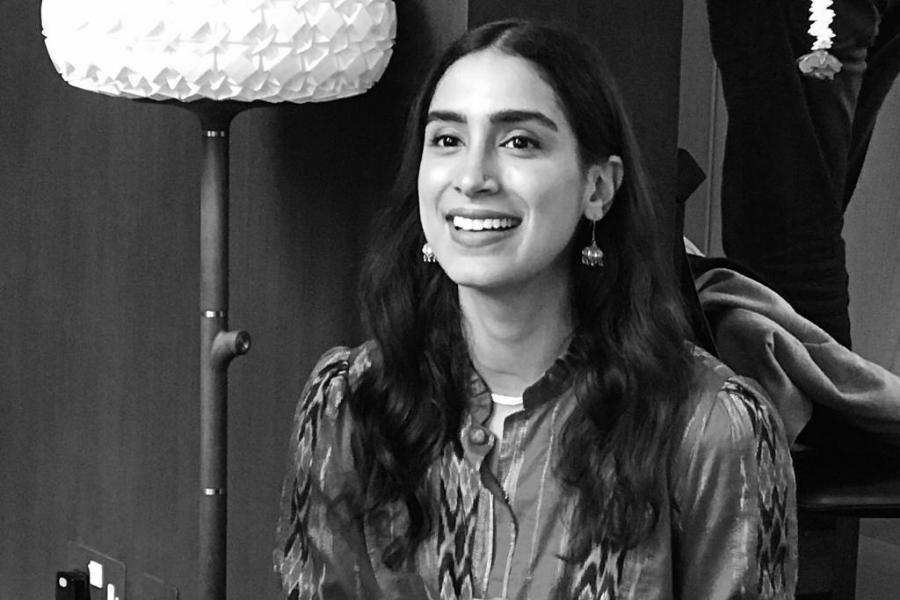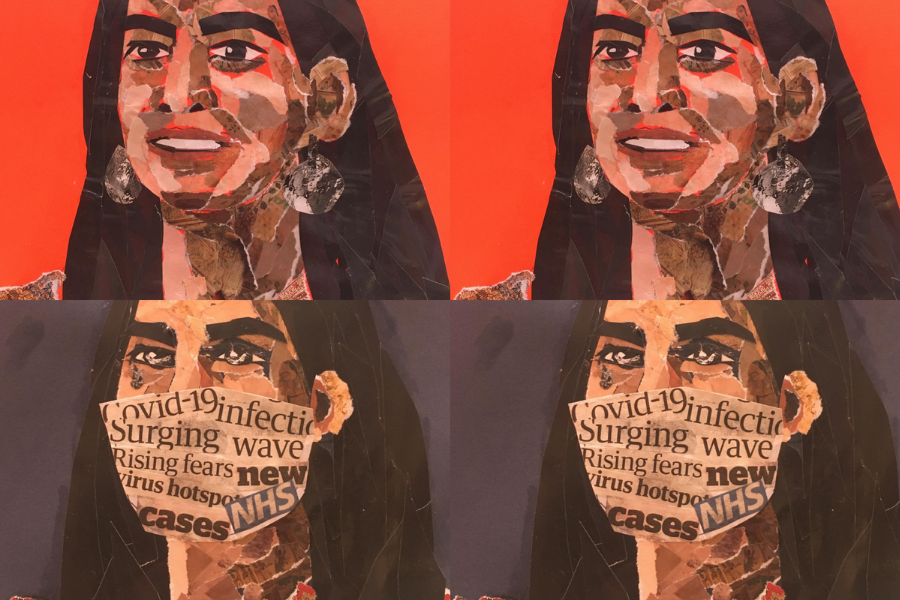Posted: 07 June 2021
Shaan Sahota: “Writing about a chaotic, painful world is still a meditative and lofty experience.”

Ahead of her upcoming debut this month, playwright and junior doctor, Shaan Sahota, tells us about UNDER THE MASK and what led her to step into the world of theatre…
Shaan Sahota is a playwright and doctor working in London. Her debut play THE ESTATE deals with a Sikh family in crisis over a disputed inheritance, set against the backdrop of a political election. It was shortlisted for the Women’s Prize in Playwriting 2020, and earned her a place on the Tamasha Playwrights program. Before studying medicine, Shaan read History and Spanish at New College, Oxford. She worked in domestic violence advocacy for Southall Black Sisters, specialising in survivors of honour-based violence. She learned she thrived helping individuals on their worst, weakest days and it led to her decision to retrain as a medic at Cambridge University.
How did the commission of UNDER THE MASK come about?
I am a junior doctor and was a Tamasha playwright for 2019/20. When the Covid pandemic hit I was re-deployed to care for critically unwell patients in ICU. It was a heartbreaking and humbling experience for everyone involved, and a painful lesson in the limits of medicine. My writing about this period was published by the Guardian at the height of the pandemic. UNDER THE MASK was Fin (Kennedy)’s idea – he’d been wanting to play with binaural audio drama for a while and thought this could be the moment. He asked me if I thought it would be possible / therapeutic to write about what was going on.

Tell us what UNDER THE MASK is about
UNDER THE MASK is a binaural audio-drama in 3D sound, with elements recorded live on Covid wards. It follows Jaskaran, a junior doctor, through a nightmarish landscape of bionic organs and mechanical lungs. The immersive nature of the piece means that the listener is thrust with Jaskaran into the throngs of a global pandemic, to watch it unfold one person at a time. In many ways, it is a small story. Jaskaran has to learn to look upon death and suffering, from very close. She’s worked hard to understand all the interventions that modern medicine can offer, but now she has to learn to just hold her nerve, just hold her patient’s hand, when there’s nothing else she can do. That’s not something we memorise for exams.
What was it like writing and creating a play during a global pandemic?
Even though one obviously informed the other, the pandemic and the writing felt very separate to me. Writing about a chaotic, painful world is still a meditative and lofty experience.
In the writing, it has a shape and it makes sense and it’s distorted into something manageable. But when I was living it, it was so much sensory input – it’s hot, fevered breath through two pairs of gloves, splatters of blood that isn’t yours, splatters of excrement that isn’t yours, it’s ribs cracking under your hands – there was no story. Living it was very far from writing about it.
Also, when I am working, I try pretty hard to keep my imagination in check and not get too involved in the backstory / emotional journey of the people I work with – it doesn’t help anyone, not my patients, not me. But in the writing, it was obviously vital to delve into the inner world of characters, to imagine how they feel and what the experience means for them, so that was pretty different.
You’re a junior doctor by profession. Why did you decide to become a playwright and how did it come about?
I love theatre, it just hadn’t occurred to me as a world I could work in. In my last year of medical school my family was torn over a disputed inheritance and I was thinking about the themes of fairness and inheritance all the time. This real life drama, the pettiness and the cruelty, gave me the idea for my first play, THE ESTATE. I was accepted into the Tamasha Playwrights group with THE ESTATE and there I’ve been writing my second play. I’ve not reached a point yet where I ask myself ‘what should I write?’ – it’s more that something is playing on my mind and the story becomes a way of exploring it.
How does your background as a doctor feed into your playwriting?
Chekov said ‘medicine is my lawful wife, writing my mistress. When I get tired of one, I spend the night with the other.’ I feel like there’s something in that. I have no plan to leave the wife for the mistress, but arguably the nights spent writing keep me sane in my marriage to medicine.
Medicine allows me to be the one stranger in the room at times of existential transition. It gives me a lot to think about and then to write about.
How do you juggle writing and being a doctor on the front-line? And any tips for those who may be in a similar position? (i.e. full-time role/ambitions to write).
I imagine most writers, even full-time writers, have to balance the jobs that pay bills with personal projects so I think it’s something everyone has to adapt to at some point.
One thing I find useful (for anyone juggling a full-time job), is to try to keep a sense of ease about writing, even when I’m tired. It’s easy to fall into feeling sorry for ourselves when we have lots of ‘work,’ but I really try to keep in mind that it’s not an obligation; it’s the thing I’m choosing to do with my time, when I could choose to do anything.
I find that’s a helpful attitude, it allows me to focus on writing after work without feeling overwhelmed or burned out.
What else are you working on right now?
With the Tamasha playwrights group, I’ve been working on my second play, THE AMORTAL COIL. It’s a stripped back sci-fi romance exploring existential malaise, and the fantasies we collectively imagine might make us happy. It’s a slightly bleak product of lockdown writing – I’m trying to rework it now with some comedy and maybe some possibility of redemption(!)